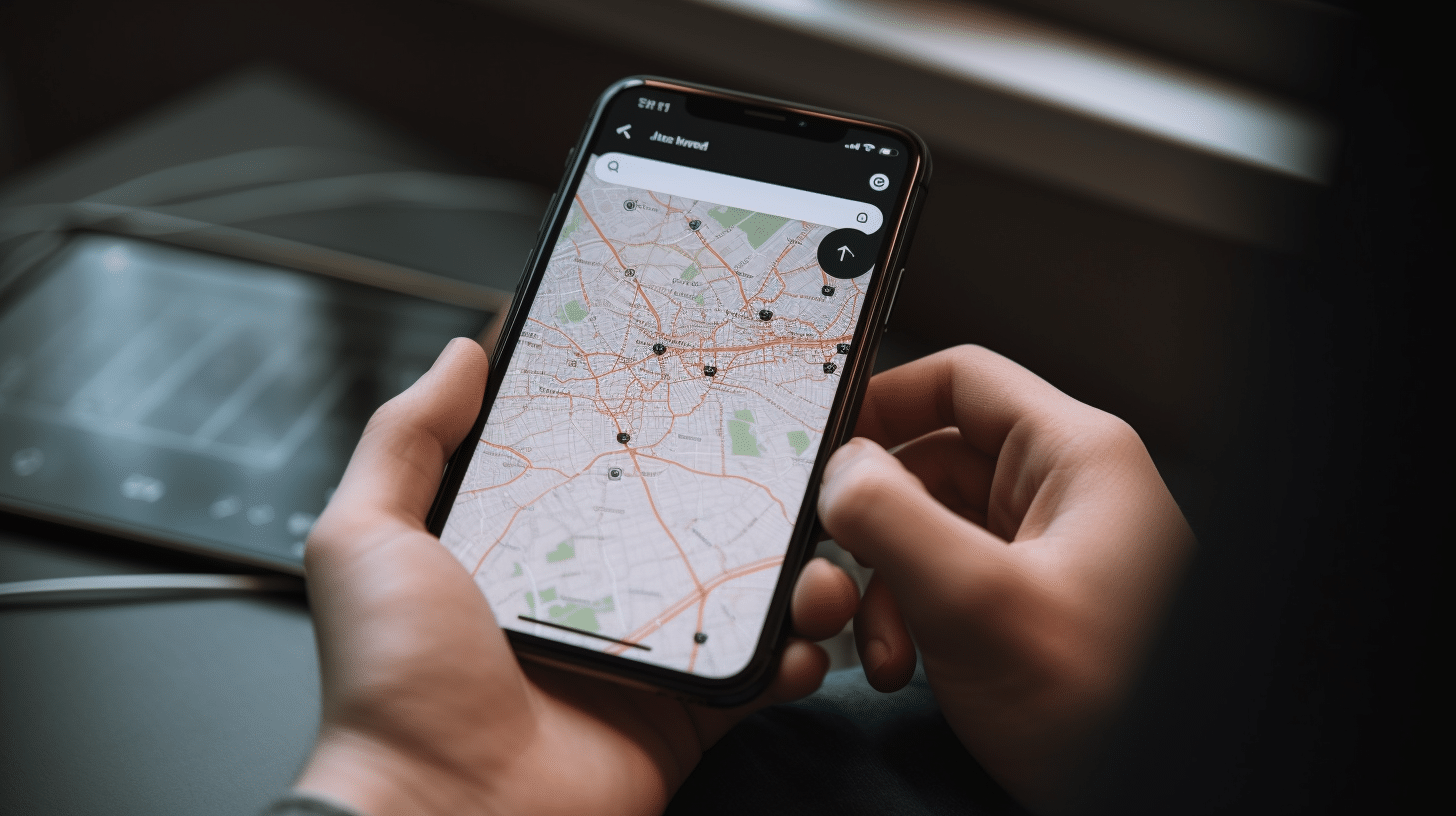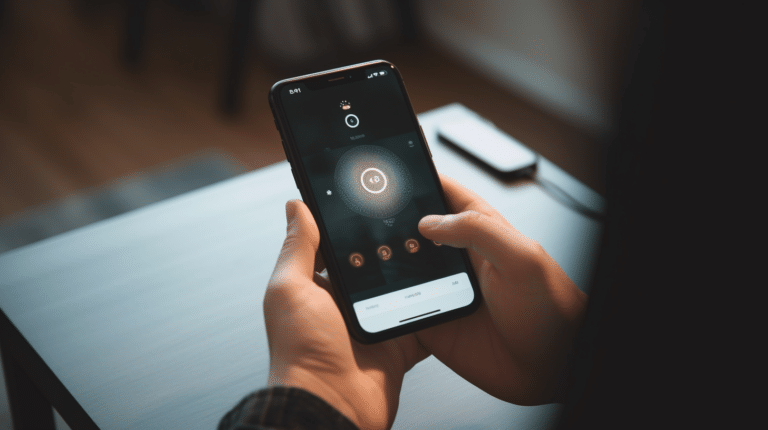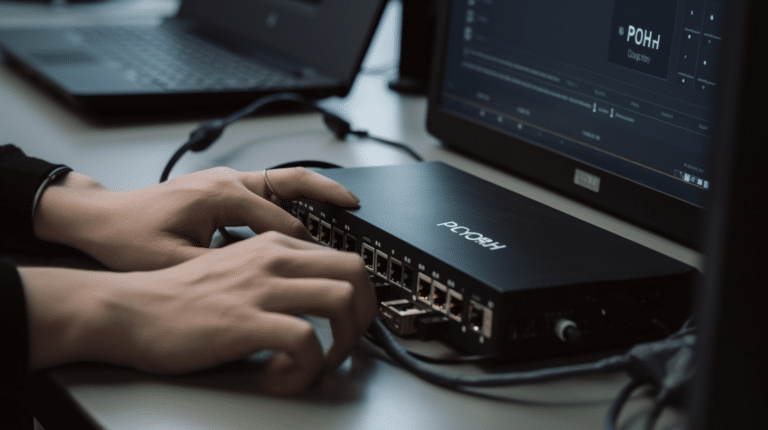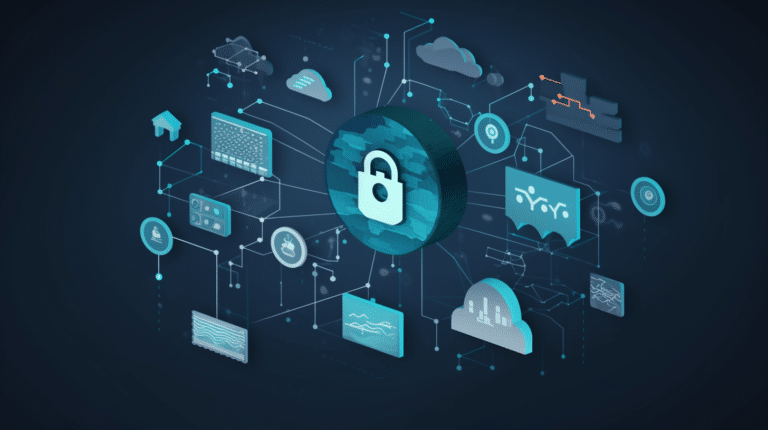In today’s highly connected world, many people turn to VPNs (Virtual Private Networks) to enhance their online privacy and bypass geo-restricted content. VPNs work by routing your internet connection through a secure server in a different location, effectively changing your IP address and making it appear as if you are accessing the internet from that location.
This ability to change your virtual location can offer several advantages such as accessing region-specific content, evading censorship, and ensuring your online privacy. While VPNs cannot physically change your location, they play a crucial role in creating a safer and more open internet experience for users worldwide.
Key Takeaways
- VPNs allow users to change their online location by rerouting their connection through secure servers in different countries.
- In doing so, VPNs enable access to region-specific content and help bypass internet censorship.
- Besides providing location-altering services, VPNs also ensure enhanced privacy and security for users in today’s interconnected world.
Understanding VPNs
A Virtual Private Network (VPN) is a tool that provides online security while using the internet. It establishes a safe, encrypted connection between your device and a remote server, keeping your data and online activities private from third parties, such as hackers or government surveillance agencies.
When you connect to a VPN service, your internet traffic is routed through the secure VPN server. This process changes your IP address to that of the connected server, effectively masking your true location. By doing so, VPNs provide an added layer of privacy and security for individuals concerned about their online safety.
There are various benefits to using a VPN. One major advantage is the ability to bypass geographic restrictions on content, such as streaming services or websites that are only accessible in certain countries. By connecting to a VPN server in the desired location, you can access this content as if you were physically there.
VPNs also enhance online security, particularly when using public Wi-Fi networks. These networks can be vulnerable to cyber attacks, and a VPN helps ensure that your data remains encrypted and safe from potential threats.
Finally, VPNs provide a level of anonymity, as they mask your true IP address and location. This can be valuable for individuals concerned about their online privacy or those in countries with strict censorship laws.
In summary, VPNs offer numerous benefits, including the ability to change your location, enhanced online security, and privacy. By incorporating a reliable VPN service into your internet routine, you can confidently and safely navigate the online world.
How VPNs Change Your Location
A Virtual Private Network (VPN) can change your location by modifying your IP address and hiding your actual location data. This is a useful feature for accessing geo-restricted content and maintaining privacy online. Here’s a brief explanation of how VPNs work to change your location.
When you connect to a VPN, your internet traffic is routed through a secure and encrypted tunnel to a VPN server located in a different country. This process masks your real IP address, making it appear as if you are browsing from the virtual location of the VPN server instead. With a new IP address, you can access content and services that may be restricted in your actual location.
To change your location using a VPN, first choose a reliable VPN service and install its software on your device. Once installed, log in and navigate to the server selection screen. From there, choose a server located in the country you want to appear to be browsing from. The VPN will establish a secure connection and assign you a new IP address based on the chosen server location.
Keep in mind that your browsing speed may be affected when using a VPN, as your internet traffic is being rerouted through the VPN server. However, this is a necessary trade-off to ensure your location data and online activities remain private.
VPNs are a powerful tool for maintaining online privacy, evading geographic restrictions, and changing your apparent location as often as needed. By simply connecting to a VPN server in a different country, you gain access to new content and services while also enjoying an added layer of security and privacy.
Impacts of Changing Your Location
Using a VPN can significantly impact your online experience by altering your location data and hiding your physical location. By connecting to a VPN server, your apparent location changes to the server’s location, effectively masking your real location. This process has several consequences on how you interact with digital services and how location tracking works.
One of the primary benefits of changing your location with a VPN is the increased privacy it offers. By concealing your actual location, you make it more difficult for websites, advertisers, and even governments to track your online activities. This added layer of privacy can be particularly important if you’re using a public Wi-Fi network where potential attackers might be after your personal information.
Another advantage of changing your location is that it allows you to access region-restricted content. Some digital services, such as media streaming platforms, restrict access to their content based on your geographical location. By connecting to a VPN server in the desired country, you can bypass these restrictions and enjoy a more diverse range of content. For example, you might be able to watch your favorite TV show on a streaming service that’s only available in another country.
Additionally, changing your location can help you avoid price discrimination. Companies often tailor their prices based on where you’re browsing from, especially when it comes to shopping for flights, hotels, and other travel-related purchases. Using a VPN to change your apparent location may lead to finding better deals and saving money on your purchases.
On the other hand, using a VPN to change your location can sometimes cause issues. Some websites and online services can detect when VPNs are being used and might block access for users connected through one. In other instances, altering your location data may lead to slower internet speeds, as your connection has to travel through the VPN server, which may be located further away from your actual location.
In conclusion, changing your location using a VPN has both benefits and drawbacks. It can help protect your privacy, grant you access to region-restricted content, and potentially save you money on online purchases. However, it may also lead to connection issues and restricted access on some websites. Understanding these impacts and weighing them against your priorities will help you decide whether using a VPN to change your location is the right course of action for you.
Safety and Security Using VPNs
VPNs are designed to provide a secure and private connection for users to browse the internet. These services aim to enhance the user’s security, privacy, and anonymity while online. This is achieved through encryption and by masking the user’s original IP address with one from another location.
VPN services use strong encryption methods to protect your data from being intercepted by hackers or any another party. This encryption plays a crucial role in ensuring your data remains unreadable by anyone who gains unauthorized access to it. Additionally, VPNs help avoid DNS leaks, which leaves your browsing history open to potential security risks.
While using a VPN significantly increases your safety and security online, it is essential to choose a reputable VPN provider with reliable performance and a proven track record. Some VPN providers might not provide sufficient security, and their service may suffer from vulnerabilities or weak encryption practices. To ensure the best possible security, look for VPNs with a large number of server locations, excellent performance, and robust privacy tools built-in.
A key aspect of online privacy is the ability to browse the internet without revealing your true location. By changing your IP address, a VPN service can make it appear that you are connecting from an entirely different location. This is helpful for various reasons, such as bypassing geo-restrictions or gaining access to information that might otherwise be censored or unavailable in your region.
When it comes to safety, it is worth considering combining a VPN service with additional tools like a Tor browser for increased anonymity. However, be aware that this may result in slower connection speeds. Also, it’s essential to regularly update your passwords to maintain a robust defense against unauthorized access.
In conclusion, using a VPN service can significantly enhance your online security, privacy, and anonymity, as long as you choose the right provider. Understanding VPN capabilities and choosing the right one ensures that you can browse the internet with confidence and peace of mind.
VPNs and Streaming Content
VPNs, or virtual private networks, are useful tools for many reasons, one of which is their ability to help you bypass geo-restrictions on streaming content. Many popular streaming platforms such as Netflix, Hulu, Amazon Prime, and BBC iPlayer restrict access to certain content based on a user’s location. By using a VPN, you can virtually change your location and access region-locked content from these streaming services.
Here’s how it works: a VPN connects your device to a remote server in another country, which then routes your internet traffic through that server. This gives you a different IP address, making it appear as if you’re browsing from the server’s location rather than your actual physical location. This can be particularly helpful for accessing region-locked content on streaming platforms.
Keep in mind, however, that not all VPNs are created equal. Some VPNs are better optimized for streaming content and provide faster connection speeds, which is crucial for a smooth streaming experience. Additionally, streaming platforms have been known to block some VPNs to enforce their content restrictions, so it’s essential to choose a reliable VPN that can bypass these hurdles.
In conclusion, VPNs can be an excellent way to access geographically restricted content from various streaming platforms, but it’s essential to choose a high-quality VPN optimized for this purpose. By doing so, you can enjoy a seamless viewing experience and access content from around the world, all while maintaining your online privacy.
How to Select VPNs
When considering VPN services for changing your location, there are numerous factors to evaluate. The first aspect to look at is the best VPNs available in the market. Some of the top names include ExpressVPN, NordVPN, Surfshark, and CyberGhost. These providers typically offer reliable connections, robust security features, and extensive server networks, ensuring that you can change your location with ease.
Another important factor to consider is the cost. While some free VPNs are available, they might not offer the same level of performance and security as paid services. In addition, they might have limited server options and slower speeds. Therefore, it is worth exploring deals and subscription plans offered by various VPN providers to find the optimum balance between cost and performance.
Before making a decision, it is essential to read reviews of these VPN services to gain insight into their performance, ease of use, and customer support. Reviews can help you understand whether a VPN service is reliable in changing your location, ensuring that you’ll be able to bypass geoblocking on apps and devices effectively.
To conclude, when selecting a VPN service to change your location, it is vital to consider factors like the reputation of the VPN provider, pricing, and user reviews. Comparing offers from the top names, such as ExpressVPN, NordVPN, Surfshark, and CyberGhost, will enable you to choose a VPN that best meets your needs and provides a seamless experience in changing your location.
Using VPNs on Different Devices
Virtual Private Networks (VPNs) are versatile tools that enhance your online privacy and security. They are designed to work on various devices and operating systems, ensuring a consistent experience across platforms. Let’s explore how to use a VPN on some of the most popular devices.
- Android smartphones and tablets: Most VPN providers offer dedicated Android apps that are user-friendly and easy to install. Simply download the app from the Google Play Store, sign in to your account, and start browsing securely with your new location and IP address.
- iOS devices: Similar to Android, VPN providers typically develop compatible apps for iPhones and iPads. You can find these apps in the App Store, and the installation process is just as straightforward – download, sign in, and start using the service.
- Windows and macOS computers: VPN clients are available for Windows and macOS as well. Download the client from the provider’s website or respective app store, sign in, and select your desired location to change your IP address.
- Laptops: Whether you use a Windows PC or a MacBook, the process of installing a VPN on a laptop is similar to that of desktop computers. Download the client, sign in, and choose a location to begin browsing with a new IP address.
- Routers: Installing a VPN on your router is an excellent way to protect all devices connected to your network. Configuring a VPN on a router can be more complicated than on other devices, but many VPN providers offer detailed guides to help you through the process. Once set up, any mobile device, computer, or tablet connected to your router will benefit from the VPN’s protection and location-changing capabilities.
In conclusion, VPNs are compatible with a wide range of devices, including Android, iOS, Windows, macOS, laptops, and routers. Installing a VPN on your device helps secure your online activities and change your location and IP address, improving your privacy and access to geo-restricted content.
Understanding the Technology Behind VPNs
A VPN, also known as a Virtual Private Network, essentially changes your internet connection point by routing your traffic through its own servers, encrypting it at the same time. This allows users to hide their actual IP address and change their location to that of the VPN server they connect to, thus granting online security and anonymity.
One of the key elements of a VPN’s functionality is its tunneling protocols. These protocols create a secure pathway for your data to travel through, ensuring the information remains private and secure. One such protocol is WireGuard, a modern and efficient tunneling protocol known for its performance and simplicity. WireGuard offers high speeds, strong encryption, and ease of implementation, making it a popular choice among VPN providers.
Double VPN is another feature worth mentioning. This involves routing your internet traffic through two separate VPN servers, adding an extra layer of encryption and security to your connection. By doing so, it becomes even more difficult for potential eavesdroppers to trace the origin of your online activity.
For users seeking additional privacy, Onion over VPN is an option worth considering. This feature combines the privacy of a VPN with the anonymity provided by the Tor network. Your traffic is first encrypted by the VPN and then routed through the Tor network, ensuring that your browsing activity remains private and untraceable.
Another important component of a VPN is the kill switch. A kill switch is a security feature that automatically disconnects your device from the internet if your VPN connection drops unexpectedly. This prevents your real IP address and location from being exposed in case of a VPN failure.
In conclusion, a VPN changes your IP location by creating a secure and encrypted tunnel between your device and the VPN server. Features like WireGuard, Double VPN, Onion over VPN, and kill switches enhance the overall security and anonymization provided by VPN services. By understanding the technology behind VPNs, you can make an informed decision about which solution is best suited for your privacy needs.
VPN Compatibility and Setup
Virtual Private Networks (VPNs) are widely used to change your location and protect your online privacy. Setting up a VPN can be a simple process, depending on the device and browser you are using. Most VPN providers offer compatibility with popular browsers such as Chrome and Firefox, as well as various operating systems.
When choosing a VPN service, it’s essential to verify its compatibility with your preferred browser and device. Browser extensions are available for both Chrome and Firefox, making it easy to change your location directly from the browser. Additionally, many VPNs offer dedicated apps for different platforms, ensuring seamless use across devices.
Setting up a VPN typically involves downloading the required software or browser extension and entering an activation code provided by the VPN service. Once installed, you can connect to a VPN server in your desired location, effectively changing your IP address and location. Some VPN services offer a feature called Smart DNS, which can be useful for streaming content restricted to specific regions. This feature allows you to bypass geo-blocks by automatically connecting to the most suitable server.
When it comes to compatibility, keep in mind that some devices may not support all VPN services. It’s crucial to check the device requirements before subscribing to a VPN to ensure a smooth experience. Most reputable VPN providers offer comprehensive guides and customer support to help users with the setup process.
In conclusion, using a VPN to change your location has become increasingly accessible due to the broad compatibility and user-friendly setup procedures. Whether you use Chrome, Firefox, or any other platform, you can find a VPN service that meets your needs and enhances your online privacy and security.
Overcoming Geo-restrictions with VPNs
Geo-restrictions can be a nuisance when trying to access content that is region-locked or limited by geography. This is where the concept of geo-spoofing comes in, allowing users to bypass such restrictions and access desired content. One of the most effective ways to accomplish this is by using a VPN, or Virtual Private Network.
A VPN helps users overcome geo-restrictions by creating a secure and encrypted connection between their device and a remote server in a different location. By connecting to a server in another country, users can effectively “spoof” their location, making it appear as if they are accessing the internet from that region. This technique enables access to region-locked content and helps bypass geo-blocking imposed by websites and services.
In addition to geo-spoofing, using a VPN can also assist with GPS spoofing. This feature is particularly useful when using services or apps that rely on your device’s GPS location data. By using a VPN to fake your GPS location, you can potentially access location-specific content or features that would otherwise be unavailable to you.
However, it is essential to choose a reliable and reputable VPN service to ensure the best results. Top-tier VPN providers offer a broad range of server locations, robust encryption standards, and user-friendly applications that make it easy to change your virtual location as needed.
Here are some of the benefits that come with using a VPN for overcoming geo-restrictions:
- Access to region-locked content, such as streaming services and online libraries
- Ability to bypass government censorship or geo-blocking imposed by websites
- Enhanced privacy and security by encrypting your internet traffic and masking your IP address
In conclusion, a VPN is a powerful tool for overcoming geo-restrictions and enabling users to access content that would otherwise be inaccessible. By engaging in geo-spoofing and GPS spoofing through a VPN connection, the world of region-locked content becomes available, and the internet is experienced as a truly global platform.
Privacy Concerns and Legal Aspects
Using a VPN to change your location offers numerous benefits such as bypassing geo-restrictions and protecting your online privacy. However, it is crucial to be aware of the privacy concerns and legal aspects associated with VPN use.
Governments around the world have varied stances on VPN legality. In most countries, including the US and the UK, VPNs are legal to use. Nevertheless, it is essential to note that engaging in illegal activities without a VPN would still be illegal when using one.
Censorship is a significant issue in some countries, where the government restricts access to specific websites or information. For instance, in China, the use of VPNs is heavily regulated, as they enable users to bypass the Great Firewall and access blocked websites and content. Using a VPN in these situations may have repercussions, as authorities might specifically target VPN users trying to circumvent restrictions.
VPNs can also help protect your online privacy from entities like advertisers. These actors often leverage cookies to track your online activity and serve targeted ads. By using a VPN, you can mask your real IP address, making it more challenging for them to track your browsing habits and target you with personalized ads.
As for freedom of speech, activists, journalists, and other users concerned about their digital safety sometimes use VPNs to communicate and share information securely. A VPN allows them to hide their real location, making it difficult for oppressive governments to trace them and potentially compromise their safety.
In conclusion, while using a VPN to change your location comes with privacy benefits, it is essential to be aware of the potential risks and legal aspects associated with VPN usage. Stay informed about the specific laws in your country and always use a reputable VPN provider to ensure a secure and reliable connection.
Navigating VPN Services
A VPN (Virtual Private Network) is a brilliant tool that can change your location by connecting you to different servers all around the world. This comes in handy for a variety of reasons, including obfuscating your actual location, accessing geo-restricted content, and enhancing your online privacy. In this section, we’ll discuss how VPN services work and how you can utilize them effectively.
VPN services usually offer a wide range of servers and server locations to choose from. These servers come in different countries or regions, and by connecting to one of them, you can essentially change your location and IP address. As the number of servers and server locations increase, so does your ability to alter your virtual location. It also aids in distributing server load, ensuring that you get the best possible connection speed.
When it comes to using a VPN service, it’s crucial to ensure that it provides a user-friendly interface. Many services feature a “quick connect” option which allows users to automatically connect to the best available server in a single click. This can save time and effort, as users don’t have to manually select a server from the list.
Keep in mind that while a VPN changes your location, a proxy server should not be mistaken for VPN services. A proxy provides somewhat similar features, but it only reroutes your traffic without encrypting it like a VPN does. This means it’s generally less secure and offers fewer advantages compared to a VPN service.
In summary, navigating VPN services involves understanding the server locations offered, using quick connect options for convenience, and recognizing the distinction between VPN services and proxy servers. By doing so, you can effectively change your location and enhance your online experience with confidence, knowledge, and clarity.
Tips for Improving VPN Efficiency
When it comes to using a VPN to change your location, there are several steps you can take to ensure a more efficient experience. These steps not only help improve the speed and reliability of your VPN connection but also help maintain your online privacy and security.
First and foremost, it’s essential to choose a high-quality VPN provider with a global network of servers. This allows you to access servers closer to your desired location, improving the accuracy of the global positioning system (GPS) coordinates provided. Furthermore, a reliable VPN provider will invest in server infrastructure to handle growing bandwidth and data traffic demands.
Secondly, remember to regularly update your VPN client to benefit from the latest performance enhancements and security updates. Outdated clients can lead to lower performance and expose you to potential vulnerabilities.
Another tip to improve efficiency involves switching between different VPN servers. If you experience slow speeds or other connection issues, try selecting an alternative server located closer to your desired location. This can help improve the connection speed as well as ensure more accurate satellite signals.
To optimize your connection further, consider adjusting the VPN protocol settings. Some protocols offer better performance than others, depending on your needs and the specific use case. For example, if you prioritize speed over security, you may want to switch to a lightweight protocol, but keep in mind that this might be at the expense of encryption strength.
Finally, it’s essential to remember that VPNs can impact your bandwidth and may potentially lead to slower internet speeds. When using a VPN, it’s a good idea to test your connection speeds both with and without the VPN connected. This will help you determine if the VPN is causing any significant slowdowns and allow you to make informed decisions about your VPN use. For more details, refer to this How-To Geek guide.
By following the above tips and selecting a suitable VPN provider, you can efficiently change your location and maintain a secure and reliable connection while browsing the internet.
Troubleshooting Common VPN Problems
One common issue users may face when using a VPN is that it doesn’t connect. A failure to connect can be due to several reasons, such as the device, VPN provider, or their app1. To resolve this issue, try re-entering your login details and restarting the VPN software2.
In some cases, a VPN problem might not be related to the VPN at all, but rather a failed internet connection. Check your internet connection by looking at your router3. If you still face issues, make sure to update your VPN software, as outdated versions can cause problems4.
Another issue users might face is that the VPN is not changing or hiding their location. In this case, try connecting to another VPN server. If the problem persists, try using private mode in your browser or clearing your browser’s cache5. Additionally, be aware that some websites and services may use browser geolocation, which can still reveal your location even with a VPN. To restrict this feature, disable browser geolocation in your browser’s settings.
When dealing with VPN problems, it’s also essential to consider the impact of firewalls and antivirus software. These security measures can sometimes block the VPN’s connection, so ensure they’re correctly configured to allow your VPN to function.
Another potential obstacle for VPN users is public Wi-Fi networks. Many public Wi-Fi providers use firewalls, which may limit or block VPN connections due to security concerns. Try connecting to a different Wi-Fi network, or use a mobile hotspot instead.
While a VPN is an excellent tool for privacy and security, using proxy servers or the Tor browser can also add an extra layer of protection. However, these solutions have their limitations, so it’s crucial to understand their differences and use them according to your needs.
Finally, when troubleshooting VPN problems, it’s crucial to keep in mind that DNS servers can reveal your location and browsing activity. Many VPN services provide their DNS servers or utilize third-party DNS servers that offer additional privacy. Check your VPN’s settings to ensure the correct DNS server configurations are in place.
Frequently Asked Questions
How effective are free VPNs in changing locations?
Free VPNs can help in changing your location, but their effectiveness is often limited compared to paid VPN services. Free VPNs may have fewer server locations, slower speeds, and lower security standards. For a more reliable and secure experience, consider using a paid VPN service.
Can using a VPN affect location-based games like Pokemon Go?
Yes, using a VPN can affect location-based games like Pokemon Go, as it can change your IP address and virtual location. However, be cautious while using a VPN with such games, as developers may detect and penalize players for faking their location.
Are there browser extensions to change VPN location?
Yes, many VPN services offer browser extensions that allow you to change your location directly from your browser. These extensions can be added to popular browsers like Chrome and Firefox. However, their efficacy and security may not always compare to using a full VPN application.
What are the steps to change VPN location on a laptop?
To change VPN location on a laptop, follow these steps:
- Choose a reliable VPN service and sign up.
- Download and install the VPN application on your laptop.
- Open the VPN application and log in to your account.
- Select a server location you want to connect to from the server list.
- Click “Connect” and wait for the connection to be established. Your VPN location should now be changed.
You can find more detailed instructions in the related VPN guide.
Which VPN services allow free access to different countries?
Some VPN services provide free access to a limited number of server locations. A few notable examples include ProtonVPN, TunnelBear, and Windscribe. Keep in mind that free services may have restrictions on bandwidth, server locations, and features.
Is a VPN enough to completely mask your IP address?
A VPN is an effective tool to mask and change your IP address, offering a good level of privacy. However, be aware that advanced techniques and detection systems could still recognize your original IP address in some cases. Using a VPN service with a strong focus on security and privacy is essential in minimizing this risk.






